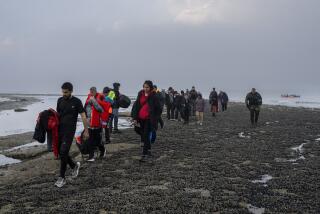Just when they’re needed most, Iran’s doctors are leaving in droves
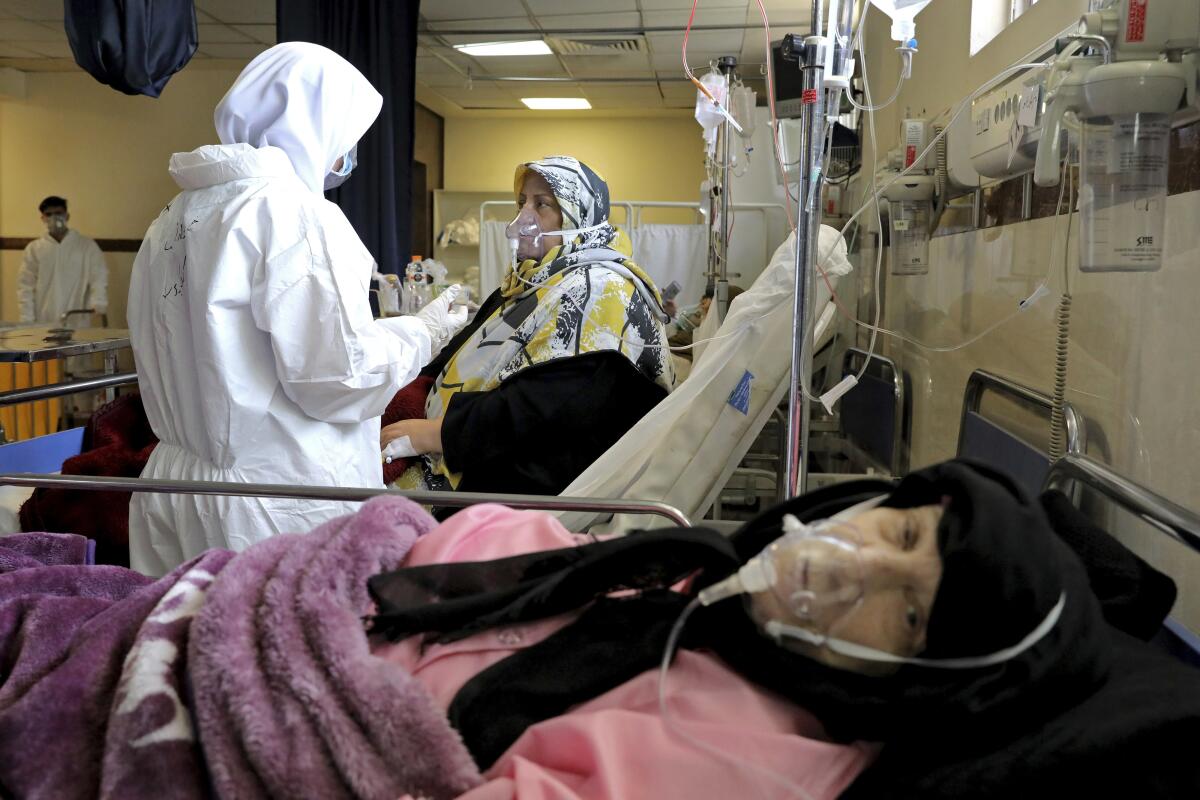
- Share via
TEHRAN — It wasn’t only family members but others in his hometown who took pride in Omid Tonekaboni’s acceptance to medical school. Doctors are an exalted group in Iran, where two of the most watched TV shows when Tonekaboni was a boy had physicians for protagonists, and where “Sina” remains one of the most popular names for babies today, after the legendary Ibn Sina, a philosopher and doctor in ancient Persia.
Tonekaboni, 44, is now an emergency specialist with more than two decades of experience under his belt. But while he wants to continue practicing his profession, fulfilling both his and his parents’ dreams for him, he no longer sees a future doing so in Iran.
U.S. sanctions, supply-strapped hospitals and the country’s nosediving economy, including his own drastically shrunken income, have combined to convince Tonekaboni of the need to seek better opportunities elsewhere. He’s now studying for international certification to enable him to join the thousands of Iranian healthcare workers who are leaving the country.
The exodus is an especially grievous blow for a proud nation grappling with one of the world’s worst coronavirus crises. Hundreds of people are dying of COVID-19 every day in Iran, adding to a cumulative death toll of 78,381 — almost certainly an undercount. Hospitals are overwhelmed with COVID-19 patients. Senior Iranian officials, who have called the mass emigration of medical professionals a grave loss, say an additional 53,000 nurses and doctors are needed to fight the outbreak.
Tonekaboni himself has been pulling long shifts in various hospitals in Tehran. But the once-idealistic doctor who held fast to the motto of “stay and serve your country” has stopped preaching that to young colleagues and is hoping to move to Germany.
“I remember I earned as much as $22,000 in 2006” — an enviable salary in Iran — “but things went wrong as international sanctions ruined our economy,” Tonekaboni said. “Today I earn 10 times less despite the fact that I’m a specialist now.”
Iran’s top leader has banned Western-made COVID-19 vaccines but is facing mounting fury from a populace devastated by the coronavirus.
In February, as a new wave of COVID-19 cases was surging, a tweet by the Medical Council of Iran shocked many by confirming that 3,000 doctors had moved abroad in 2020. Reaction ranged from sympathy for those who left and criticism of the government’s lack of support for doctors to blame on rich countries for stealing human capital from developing countries amid an unfolding pandemic.
Tonekaboni doesn’t doubt the figure put out by the medical council.
“I can say some 30% of my friends and colleagues have left Iran for Western Europe and North America since 2009,” he said, adding that emigration is not the “happy ending” many like him sought after having invested so much time and effort studying medicine in Iran’s highly competitive educational system.
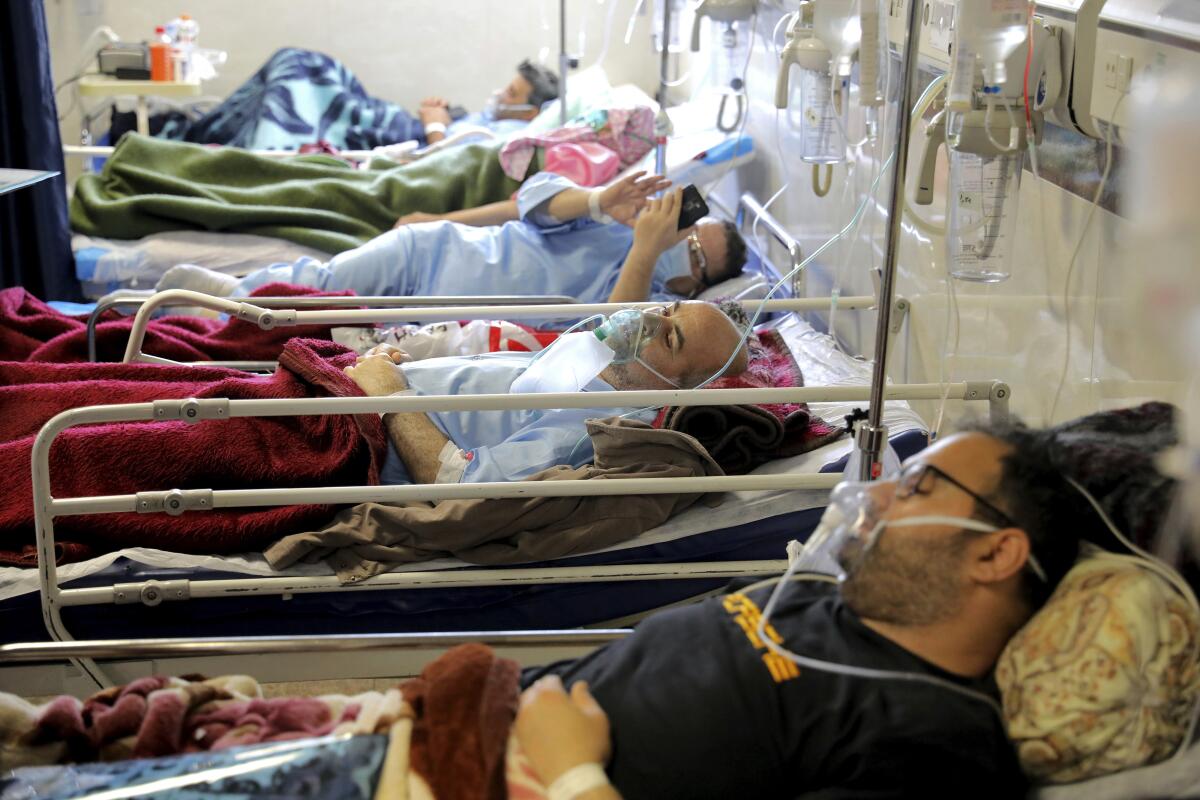
Brain drain has been a problem for the Islamic Republic over the last three decades. Various reports estimate that some 180,000 highly educated Iranians leave the country every year.
Doctors began joining the outflow in greater numbers during the hard-line 2005-13 presidency of Mahmoud Ahmadinejad, whose confrontational approach to the West caused the rial, Iran’s currency, to plunge in value. The Trump administration’s “maximum pressure” campaign against Tehran delivered more blows to an already weakened economy.
Job and income security, even for healthcare professionals, felt increasingly tenuous.
Breaking News
Get breaking news, investigations, analysis and more signature journalism from the Los Angeles Times in your inbox.
You may occasionally receive promotional content from the Los Angeles Times.
Shohreh Golpeykar is taking certification courses to allow her to immigrate to Canada. The 35-year-old nurse says that dozens of her colleagues and former classmates have already moved there or to Australia.
“I’ve been a nurse with almost 10 years of experience and worked under intense pressure for many years,” she said. “But I think my job doesn’t pay well here.”
Specialists like Tonekaboni had more incentive to stay because many were reaping the benefits of a booming medical tourism industry. Thousands of patients from Persian Gulf countries and even Eastern Europe flew to Iran to receive affordable, high-quality treatment.
But the coronavirus has now largely choked off that source of income. And government programs to keep doctors happy and the health sector progressive by offering good salaries and job security have faltered after some early success.
Volunteer body washers have been called on to uphold a sacred Islamic custom amid the health crisis in Iran. One such person is 33-year-old Tahereh Adibi.
“The human resources of the country are either emigrating from the country or being reduced to hopeless people” overcome by economic hardship, psychiatrist Ali Nikjoo tweeted.
Tonekaboni said he had a chance to move to the United States, where his sister lives, back when the reformist Mohammad Khatami was president, before Ahmadinejad. But he opted not to go then because he had an excellent income, and current circumstances don’t seem propitious.
“Given the sizable Iranian community, the United States has been the prime destination for many Iranian doctors and specialists,” Tonekaboni said. “But it seems, in the past several years, U.S. medical centers have been reluctant to take in Iranian doctors.”
Besides, he went into medicine to help his own people, who needed more physicians like him.
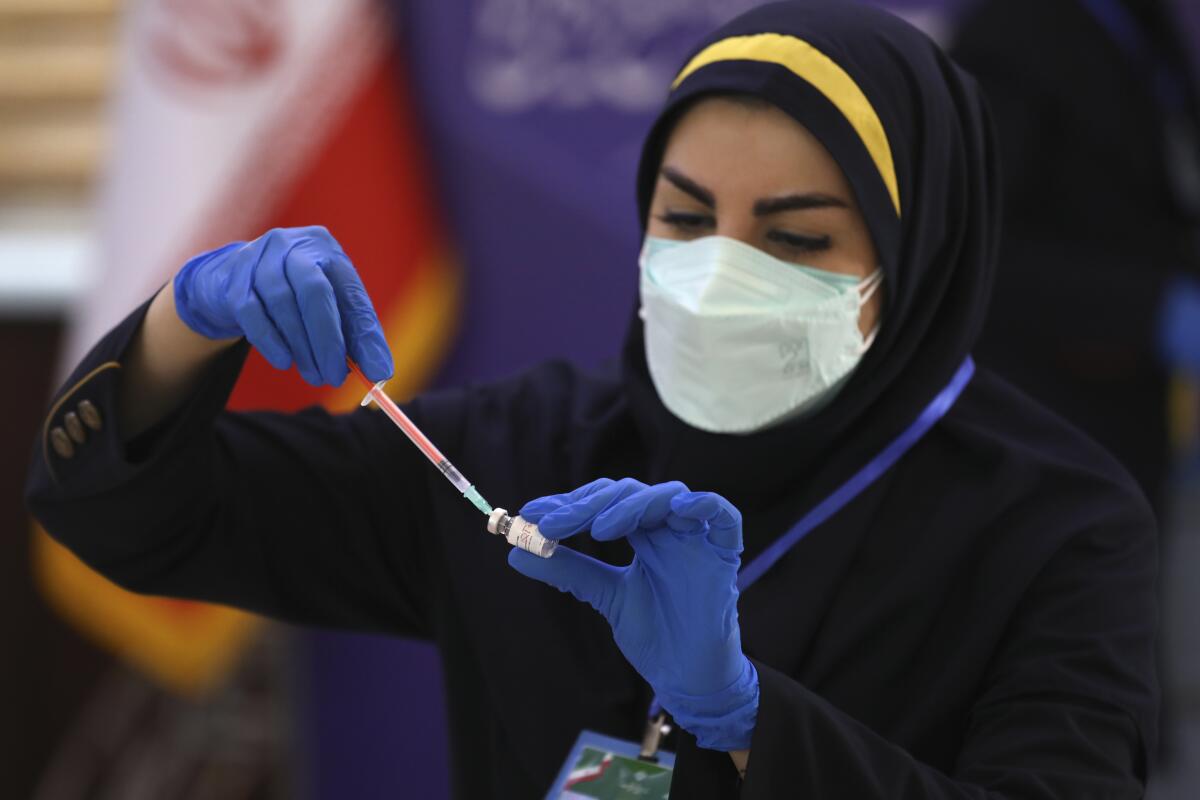
“There was a serious scarcity of doctors in the ’80s after the revolution and amid the Iran-Iraq war. We were kids, and studying medical science and becoming a doctor was the greatest wish of families” for their children, said Tonekaboni, who grew up in a provincial town in northern Iran.
He studied hard and found inspiration in “Aunt Sara” and “Ibn Sina,” popular TV shows about the exploits of a modern-day doctor and the physician known in the West as Avicenna, the medieval Islamic philosopher-scientist.
Leaving Iran never occurred to Tonekaboni then. Alas, now it’s his goal.
“I wish I had the chance to retire to my hometown, but with job security and a good income gone, it’s a dream now,” Tonekaboni said.
“I don’t think that emotional bonds can keep me here any longer.”
Khazani is a special correspondent.
More to Read
Sign up for Essential California
The most important California stories and recommendations in your inbox every morning.
You may occasionally receive promotional content from the Los Angeles Times.
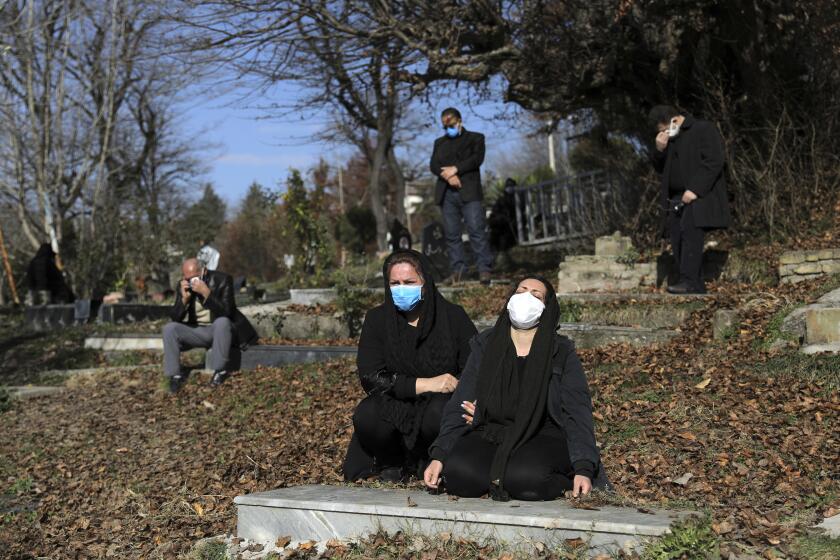
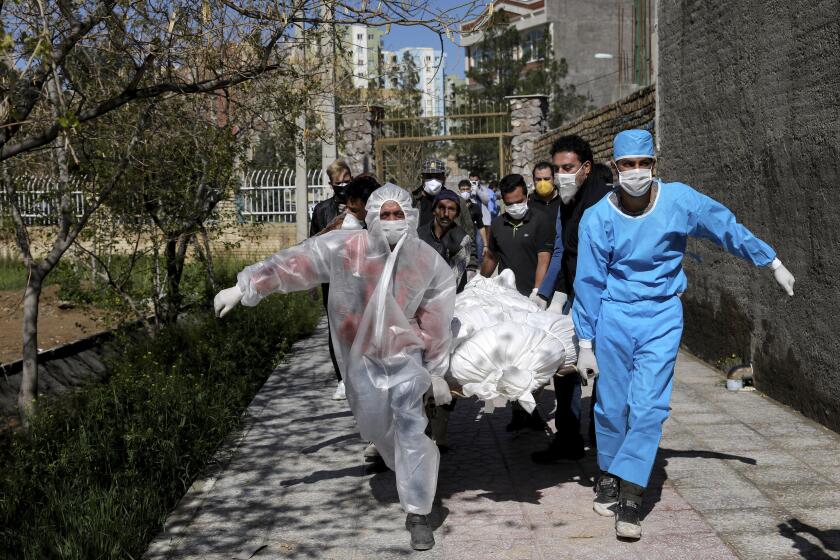

![LOS ANGELES, CA - JUNE 17: [Cody Ma and Misha Sesar share a few dishes from their Persian Restaurant Azizam] on Monday, June 17, 2024 in Los Angeles, CA. (Ethan Benavidez / For The Times)](https://ca-times.brightspotcdn.com/dims4/default/7ffc7f6/2147483647/strip/true/crop/5110x3417+306+0/resize/320x214!/quality/75/?url=https%3A%2F%2Fcalifornia-times-brightspot.s3.amazonaws.com%2F79%2Fdc%2F4d29255545f5b9813315901692bc%2F1459972-fo-azizam-review20-eba.JPG)
